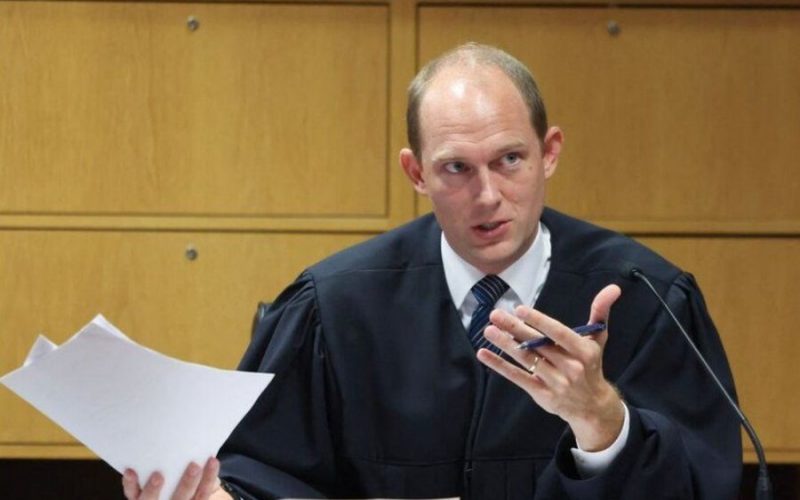On February 12th, Fulton County Superior Judge Scott McAfee affirmed that the hearing regarding misconduct allegations against Fulton County District Attorney Fani Willis and special prosecutor Nathan Wade “must occur” on February 15th and could potentially result in disqualification.
Ms. Willis is overseeing the high-profile racketeering case involving former President Donald Trump and 14 other individuals.
“I think it’s clear that disqualification can occur if evidence is produced presenting a conflict or the appearance of one, and the filings submitted on this issue so far have presented a conflict of interest that can’t be resolved as a matter of law,” Judge McAfee stated.
State attorneys attempted to invalidate the subpoenas for nine members of the district attorney’s office and an attorney who represented Mr. Wade during his divorce proceedings.
“I don’t see how quash can be imposed here,” Judge McAfee said during a Feb. 12 hearing ahead of this week’s anticipated hearing in which the district attorney will have to respond to allegations of an ‘improper’ relationship.
On January 8th, defendant Michael Roman submitted a comprehensive motion alleging a personal relationship between Ms. Willis and Mr. Wade, an attorney from a private law firm contracted to play a key role in the racketeering case. Roman claimed that Mr. Wade took Ms. Willis on “lavish’ vacations, including a cruise, and that she financially benefited from the situation.
He also leveled several other accusations, including that Mr. Wade lacked the qualifications for his role and that Ms. Willis misused funds. The judge noted that these issues would not be the primary focus of the evidentiary hearing scheduled for February 15th.
Following these significant claims, several co-defendants filed their own motions to disqualify Ms. Willis citing “prejudicial” conduct.
“Specifically looking at defendant Roman’s motion, it alleged a personal relationship that resulted in a financial benefit to the district attorney that is no longer a matter of speculation,” the judge stated. “The state has admitted a relationship existed, and so what remains to be proven is the existence and extent of any financial benefit, again if there even was one.”
Judge McAfee stated that the allegations of prejudice stemmed from public statements, including a speech by Ms. Willis at an Atlanta church where she referenced God and accused her critics of playing the “race card.” He determined that these claims did not justify a hearing intended to gather evidence for the record. Additionally, issues such as Mr. Wade’s resume were deemed insufficient to warrant an evidentiary hearing, as per the judge’s ruling.
The district attorney submitted a motion asserting that an evidentiary hearing was unnecessary as there was no conflict of interest, but the judge dismissed this argument.
“Because I think it’s possible that the facts alleged by the defendant could result in disqualification, I think an evidentiary hearing must occur to establish a record on those core allegations,” Judge McAfee said.
He said that the hearing will focus on “whether a relationship existed, whether that relationship was romantic or not in nature, when it formed, and whether it continues.”
“I think that’s only relevant because it’s in relation to the question of the extent of any personal benefit conveyed as a result of the relationship,” Judge McAfee added.
Share your thoughts by scrolling down to leave a comment.

